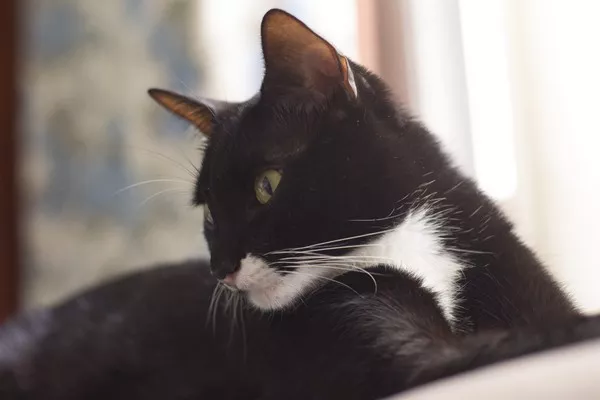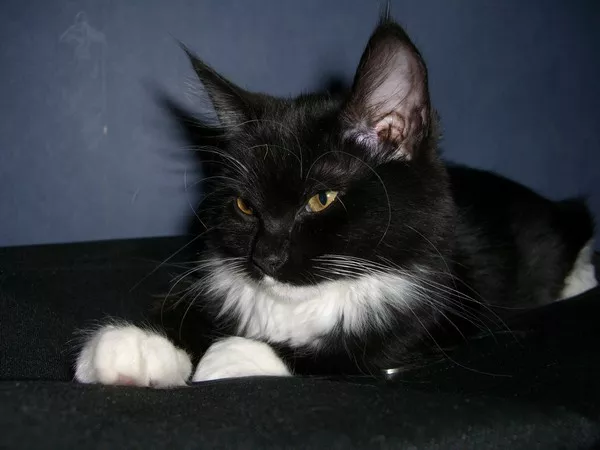Korat cats, known for their striking blue-gray coat and vibrant green eyes, are not only beautiful but also possess a unique personality. Originating from Thailand, these cats are affectionate, intelligent, and energetic. However, like all breeds, they can be prone to specific health issues. Understanding these health problems is crucial for ensuring a long, happy life for your Korat cat. This article explores the common health problems, preventive care, diet and nutrition, exercise and mental stimulation, grooming and hygiene, special considerations, and emergency care for Korat cats, with a focus on the importance of maintaining optimal cat health.
Common Health Problems with Korat Cats
1. Genetic Conditions
Korat cats are genetically predisposed to certain health issues that owners should be aware of:
Hypokalemic Polymyopathy: This is a muscle disorder characterized by low potassium levels in the blood. Cats with this condition may experience muscle weakness, particularly in the hind limbs. Symptoms can include difficulty walking, muscle stiffness, and lethargy. This condition can be managed through dietary adjustments and potassium supplementation under veterinary supervision.
Gangliosidosis: This is a lysosomal storage disease caused by the accumulation of toxic substances in the body’s cells due to enzyme deficiencies. Symptoms can vary but may include neurological deficits, such as weakness, seizures, and developmental delays. Genetic testing can help identify carriers, and affected cats should be managed by a veterinarian.
2. Heart Disease
Heart disease is a significant concern for many cat breeds, and Korat cats are no exception. The most common heart condition in cats is hypertrophic cardiomyopathy (HCM). This disease causes the heart muscle to thicken, which can lead to heart failure or other complications. Symptoms of HCM can be subtle and may include:
- Increased respiratory rate
- Coughing
- Lethargy
- Loss of appetite
3. Dental Issues
Dental health is an important aspect of overall cat health. Korat cats are prone to periodontal disease, which can lead to serious health problems if left untreated. Signs of dental issues include:
- Bad breath
- Difficulty eating
- Swollen gums
Preventive Care
1. Regular Vet Checkups
Regular veterinary checkups are essential for maintaining cat health. These checkups can help catch health issues early, allowing for prompt treatment. During these visits, your veterinarian will perform a thorough physical examination, discuss any concerns, and recommend vaccinations and preventive care based on your cat’s age, lifestyle, and health status.
2. Vaccinations and Parasite Control
Korat cats should be up-to-date on their vaccinations to protect them from common feline diseases. Vaccinations may include:
- Feline viral rhinotracheitis
- Calicivirus
- Panleukopenia
- Rabies
In addition to vaccinations, parasite control is vital. Korats can be susceptible to fleas, ticks, and worms. Discuss a comprehensive parasite prevention plan with your veterinarian to ensure your cat remains healthy.
4. Diet and Nutrition
A balanced diet is fundamental to the overall health of your Korat cat. To support optimal cat health, provide a high-quality diet that includes:
High-Quality Protein: Cats are obligate carnivores, which means they require a diet rich in animal protein. Look for cat foods with high-quality protein sources, such as chicken, turkey, or fish, as the first ingredient.
Essential Nutrients: Ensure the diet includes essential fatty acids, vitamins, and minerals. Taurine, an amino acid, is particularly important for heart health in cats.
Avoid Fillers: Avoid foods with excessive fillers, such as corn or soy, as these do not provide the necessary nutrients your cat needs.
Hydration: Proper hydration is also essential for maintaining cat health. Always provide fresh, clean water to encourage your Korat to stay hydrated. Consider offering wet cat food as part of their diet, as it can help increase their water intake.
5. Exercise and Mental Stimulation
Korat cats are active and playful, requiring regular exercise and mental engagement to maintain a healthy lifestyle.
Physical Activity
Encourage your Korat to engage in regular physical activity. This can be achieved through:
Interactive Play: Use toys like feather wands, laser pointers, or balls to stimulate play. Regular play sessions help maintain a healthy weight and muscle tone.
Cat Trees and Scratching Posts: Provide climbing structures and scratching posts to encourage natural behaviors and physical activity.
Mental Stimulation
Keeping your cat mentally stimulated is just as important as physical exercise. Consider these suggestions:
Interactive Toys: Toys that challenge your cat’s intelligence, such as puzzle feeders, can keep them engaged and reduce boredom.
Training: Teach your Korat simple tricks or commands. This not only provides mental stimulation but also strengthens your bond.
6. Grooming and Hygiene
Although Korat cats have short coats, grooming is still essential for their health.
Regular Grooming: Regular brushing helps remove loose hair and reduces shedding. It also provides an opportunity to check for skin issues or parasites. A few minutes of brushing a week can make a significant difference in their coat health.
Bathing: While cats are generally good at grooming themselves, occasional baths can help keep the coat clean and healthy. Use a cat-specific shampoo and ensure you rinse thoroughly.
Special Considerations
Age-Related Issues
As Korat cats age, they may face specific health concerns, including:
Arthritis: This degenerative joint disease can cause pain and stiffness. Regular veterinary checkups can help manage arthritis symptoms and improve your cat’s quality of life.
Kidney Disease: Older cats are also at higher risk for kidney disease. Regular blood tests can help monitor kidney function and catch any issues early.
Behavioral Health
Korat cats are known for their affectionate and social nature, but they can also experience stress and anxiety. To promote good behavioral health:
Routine: Maintain a consistent daily routine to help your cat feel secure.
Safe Spaces: Create a safe space for your Korat to retreat when feeling stressed.
Recognizing Signs of Illness
Owners should be vigilant for any changes in behavior, appetite, or litter box habits. Signs to watch for include:
- Vomiting or diarrhea
- Lethargy or reduced activity
- Changes in grooming habits
- Changes in drinking or eating patterns
If you notice any of these signs or other concerning symptoms, consult your veterinarian promptly. It’s essential to seek immediate care if your cat exhibits severe distress, such as difficulty breathing, severe vomiting, or unconsciousness.
Conclusion
Korat cats are wonderful companions, but they can be prone to specific health issues. Understanding these common problems, along with the importance of preventive care, diet, exercise, grooming, and recognizing signs of illness, is essential for maintaining optimal cat health. Regular veterinary checkups and a proactive approach to care can help ensure that your Korat enjoys a long, healthy, and happy life.
Related Topics



























